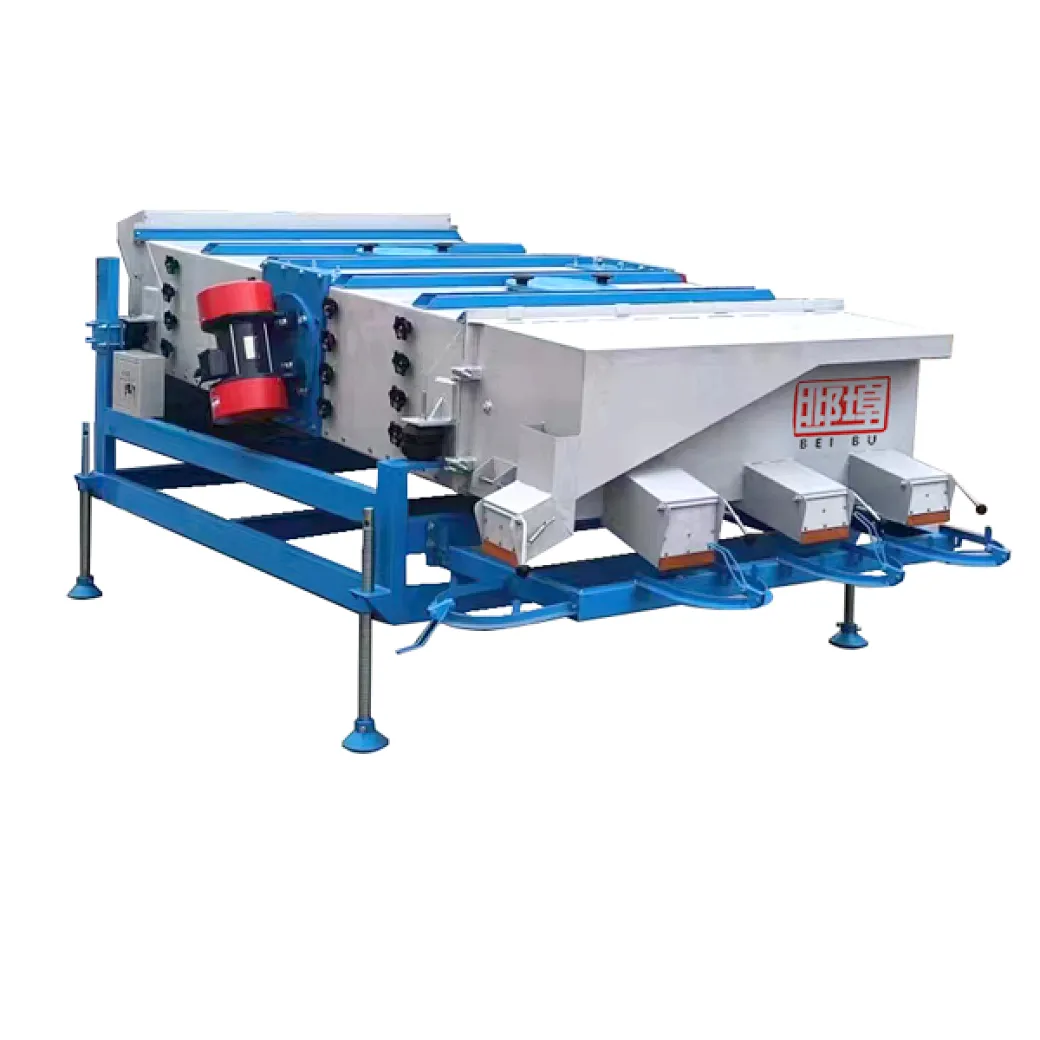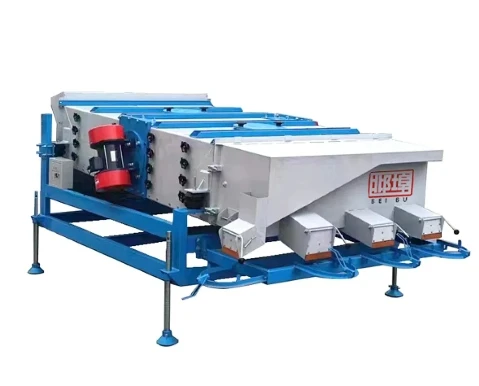A vibration grader works by utilizing controlled vibrations to separate materials based on particle size. The equipment consists of one or more inclined screening decks covered with mesh or perforated plates, through which materials are passed. A powerful vibrating motor generates vibrations that cause the materials to move rapidly and evenly across the surface of the decks. These vibrations help spread the material uniformly, preventing clogging and allowing smaller particles to pass through the screen openings while larger particles continue moving along the deck to be discharged separately. The combination of vibration intensity, deck inclination, and screen size can be adjusted to optimize separation efficiency for different materials and grading requirements. As the material moves along the vibrating deck, the lighter and smaller particles fall through the mesh openings, while the coarser and heavier particles remain on top and are discharged at the end of the deck. This process ensures precise grading and sorting of materials such as minerals, aggregates, powders, and grains. The vibration also helps to dewater and clean materials by shaking off excess moisture or dust during the screening process. Overall, a vibration grader provides an efficient, reliable, and continuous method for separating materials by size, widely used in mining, construction, agriculture, and industrial applications to improve product quality and processing efficiency.
Beibu Machinery








